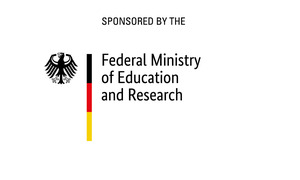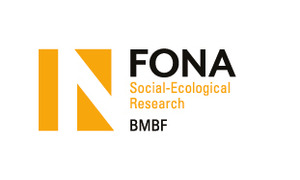In their currently published study, Dominika Wruk, Tino Schöllhorn and Achim Oberg explore the field of the sharing economy. Analyzing relational structures and discourses is crucial for developing a through understanding of the current state and potential development of the sharing economy. In this chapter, the authors applied two different field conceptions – organizational field and issue field – as a starting point for an explorative empirical analysis. To capture both field concepts, the authors collected relational data and data on organizations’ self-representations to see how organizations engaged in the debate on the sharing economy relate to each other. The observed network of organizations suggests that the sharing economy is an issue field. In addition, the core of this network shows the relational structure of an organizational field. Surprisingly, it is not an organizational field of the sharing economy. Instead, it is a field of organizations heavily engaged in proselytizing new organizational forms that will change other fields. What the authors observed is a new field configuration – the authors call it a disruptive field – that is, less inward-oriented than other fields but much more engaged in changing other fields’ structures and dynamics. During the dot-com years, they supported Internet start-ups; then, they made Web 2.0 platforms popular; and now, they have legitimized and strengthened sharing economy start-ups. So far, they pay more attention to dominant sharing organizations (e.g. Airbnb, Uber). With these insights, the authors contribute to institutional research on field configuration and shed light on the phenomenon of the sharing economy and its potential development.
Publication
Wruk, D., Schöllhorn, T., & Oberg, A. (2020). Is the Sharing Economy a Field? How a Disruptive Field Nurtures Sharing Economy Organizations. In I. Maurer, J. Mair, & A. Oberg, Theorizing the Sharing Economy: Variety and Trajectories of New Forms of Organizing (pp. 131–162).
Link to publication:
-------------------------------------------------------------------------------------------------------------------
Wie ist das Feld der Sharing Economy strukturiert? Dieser Frage gehen Dominika Wruk, Tino Schöllhorn und Achim Oberg in ihrer aktuellen Veröffentlichung nach.
In Ihrer explorativen Studie zum Feld der Sharing Economy finden die platforms2share ForscherInnen heraus, dass Sharing Organisationen Legitimation und Ressourcen von einem „Disruptiven Feld“ an Organisationen (z.B. Tech-Medien, Venture Capitalists) erhalten, die technologische Innovationen anstoßen und stärken und damit bestehende Industrien und Felder disruptieren. Bisher schenkt dieses Feld insbesondere dominanten Sharing Organisationen (z.B. Airbnb, Uber) Aufmerksamkeit. Die Autoren veröffentlichen den Beitrag in der renommierten Serie „Research in the Sociology of Organizations“.
Dominika Wruk, Tino Schöllhorn und Achim Oberg untersuchen in ihrer explorativen Studie das Feld der Sharing Economy. Relationale Strukturen und Diskurse in Feldern zu untersuchen ist wichtig, um den aktuellen Status und mögliche Entwicklungen der Sharing Economy zu verstehen. Deshalb werden zwei Feldkonzepte als Startpunkte der Studie herangezogen: Das Organisationale Feld und das Themenfeld. Um beide Feldkonzepte empirisch zu fassen und zu ermitteln, wie sich Sharing Organisationen im Diskurs positionieren und welche Beziehungen in dem Feld bestehen, sammeln die AutorInnen relationale Daten und Daten aus den Selbstdarstellungen von Organisationen. Das beobachtete Netzwerk an Organisationen zeigt, dass die Sharing Economy ein Themenfeld ist. Im Kern des Themenfeldes sehen die Autoren Strukturen eines Organisationalen Feldes. Überraschenderweise ist es kein organisationales Feld der Sharing Economy. Stattdessen ist es ein Feld von Organisationen, die die Entstehung neuer Organisationsformen vorantreiben und damit Wandel in bestehenden Feldern und Industrien fördern. Die Autoren beobachten damit eine neue Feldkonfiguration, die sie als „disruptives Feld“ bezeichnen. Dieses Feld ist weniger nach innen gerichtet als andere Felder und viel mehr darauf ausgerichtet, Strukturen und Dynamiken in anderen Feldern zu verändern. Während der Dotcom-Blase unterstützte es Internet Start-Ups; dann machte es Web 2.0-Plattformen populär; und jetzt werden Start-Ups in der Sharing Economy legitimiert und gestärkt. Bisher wird besondere Aufmerksamkeit dominanten Modellen wie Airbnb oder Uber zuteil. Mit diesen Ergebnissen, tragen die Autoren zur neo-institutionalistischen Forschung zu Feldkonstellationen bei und dazu, das Phänomen der Sharing Economy und mögliche Entwicklungen besser zu verstehen.
Publikation
Wruk, D., Schöllhorn, T., & Oberg, A. (2020). Is the Sharing Economy a Field? How a Disruptive Field Nurtures Sharing Economy Organizations. In I. Maurer, J. Mair, & A. Oberg, Theorizing the Sharing Economy: Variety and Trajectories of New Forms of Organizing (pp. 131–162).
Link zur publication:
08/04/2020





